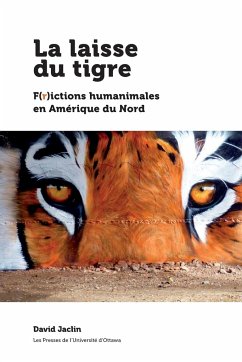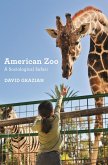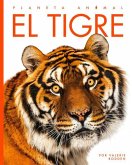Un tigre du Bengale, qui barbote anxieusement dans une petite piscine en plastique durant l'été et que l'on nourrit de viande de supermarché, est-il toujours un tigre? En examinant l'existence troublée d'animaux réputés sauvages, mais vivant désormais de conditions domestiques et artificielles puissantes, ce livre pose la double question de la communication et de l'animalité. La vie accidentée de ces animaux trafiqués transpire nos changements écologiques actuels, incarne la disparition vertigineuse d'espèces animales et renvoie à la détérioration accélérée d'habitats naturels. Dans ce livre, on découvre des biographies animales, comme celle d'un chimpanzé cobaye (Rachel) évoluant dans un sanctuaire évangélisateur ou encore, celle d'un dauphin (Nellie) au « chômage », mis aux enchères après la faillite du parc d'attraction qui l'a vu naître et grandir. Mises en résonance, chacune de ces biographies compose un véritable bestiaire d'êtres qui pourraient sembler provenir d'histoires fictives abracadabrantesques et qui, pourtant, sont tout sauf imaginaires. Voilà qui permet de reposer, autrement, la vieille question de l'espèce. Ce livre est publié en français. - If a Bengal tiger anxiously splashes around in a small plastic pool in the summer and feeds on supermarket meat, is it still a tiger? By examining the troubled existence of so-called wild animals now living under overwhelmingly domestic and artificial conditions, this book raises the dual question of communication and animality. The turbulent lives of these trafficked animals reflect current ecological changes, embody the precipitous disappearance of animal species, and denote the accelerated deterioration of natural habitats. This book presents animal biographies, such as that of a former laboratory chimpanzee (Rachel) now living in an evangelizing sanctuary, or that of an "unemployed" dolphin (Nellie) put up for auction after the amusement park where it was born and raised went bankrupt. Echoing one another, these biographies make up a bestiary of beings that seem to have leapt from grotesque fiction. Yet, they are anything but imaginary. And thus the age-old question of species is raised once again, albeit in an entirely different fashion than before. This book is published in French.
Hinweis: Dieser Artikel kann nur an eine deutsche Lieferadresse ausgeliefert werden.
Hinweis: Dieser Artikel kann nur an eine deutsche Lieferadresse ausgeliefert werden.








